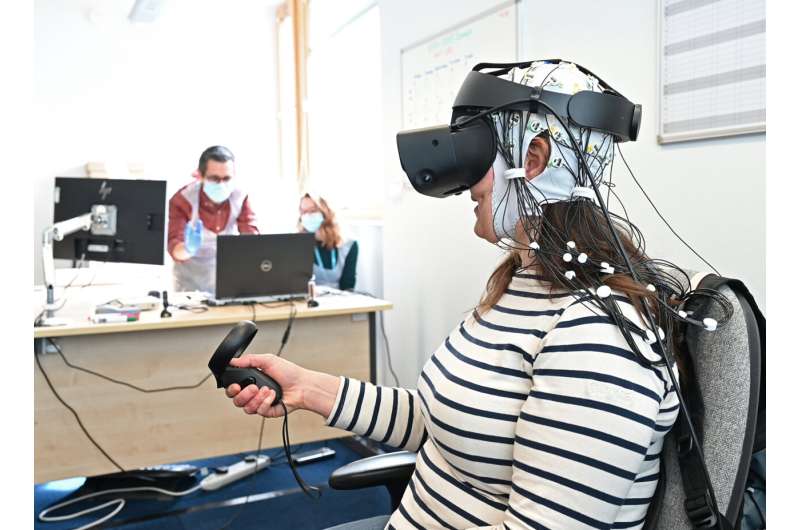Could a 'brain-computer interface' one day cure chronic pain?

Researchers at the University of East Anglia are launching a new project to see whether virtual reality could help with the treatment of chronic pain.
As many as 50 percent of the UK population are living with chronic pain, and the team will study whether new technology delivered via a VR headset could help ease their symptoms.
One very futuristic aspect to the study is that the team will Use a "brain-computer interface" where people will be taught to control elements of the VR game using only the power of their mind.
Dr. Jordan Tsigarides from UEA's Norwich Medical School and a Rheumatology doctor at the Norfolk and Norwich University Hospital, said: "Virtual Reality is an emerging technology where the user gains a completely immersive, interactive and often transformative experience with the use of a head-mounted display.
"VR seems to flood the brain with a multitude of audiovisual signals, engaging the senses and diverting the brain's attention from processing pain signals."
"At present, there is evidence that VR can significantly decrease people's acute pain. What we are looking to find out is whether this kind of technology can be used to help people suffering chronic pain as well."

The team is working alongside industry partner, Orbital Innovations, and has created an innovative new VR program for patients with chronic pain conditions, including fibromyalgia syndrome and chronic pain following a total knee replacement. It will be tested on patients recruited from the NNUH and Addenbrookes in partnership with Rheumatology, Orthopedics and Pain Management departments.
Dr. Tsigarides said: "The virtual worlds that we have created aim to transport patients to naturalistic, immersive environments whether its traveling down a cool snowy river or planting crops in a luscious warm forest. Through VR, we aim to engage patients through challenging and interactive games, with the objective of understanding more about how this technology can reboot the brain's pain networks.
"We are working with neuroscientists at the UEA to look at the brain waves of people with chronic pain. This has the potential to allow us to see how this technology is working, as well as learn more about the brain function of people with these conditions.
"Moving things with your mind sounds like something straight from a sci-fi movie but with today's technology, brain-computer interfaces are being used more and more in health research. We believe that this exciting new innovation when coupled with an immersive VR experience will 'power up' the pain relief seen with VR alone.
"Given that just under 28 million adults in the UK suffer from chronic pain, and that we are in the midst of an opioid epidemic, this treatment could be an important future intervention."
Peter Brady, CEO of Orbital Innovations, said: "Orbital Innovations has been working towards the development of a virtual reality technology, which will offer a way of mitigating the effects of chronic pain. This innovative project collaboration with UEA, will be breaking new ground in fully exploring the exciting opportunities this technology will offer patients in the future."


















